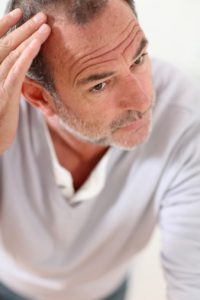 Hair loss is surprisingly common – and not just among men. Women can also lose their hair, which can be very noticeable. While most people associate hair loss with men, balding can strike anywhere, at any time, and with any gender. Understanding why you may be losing your hair may help you deal with the problem.
Hair loss is surprisingly common – and not just among men. Women can also lose their hair, which can be very noticeable. While most people associate hair loss with men, balding can strike anywhere, at any time, and with any gender. Understanding why you may be losing your hair may help you deal with the problem.
Here are 7 reasons that may be responsible for your hair loss:
- Too Much Vitamin A
Vitamin A is one of the best vitamins for overall health – particularly for the skin and hair. Too much, however, is a bad thing. The fat-soluble vitamin can cause hair loss if consumed in overly high quantities – more than 5,000 IU (for adults) per day. Luckily, though, reducing your Vitamin A intake could also help reverse the hair loss.
- Insufficient Protein
Advertisement
Hair is actually made out of protein, so consuming sufficient protein is the key to having healthy hair. When there is insufficient protein available in the body, hair production stops in order to conserve the limited amino acids. This usually shows up within 3 months after a reduction in protein consumption, but it can easily be solved by eating more protein.
- Stress or Trauma
Times of emotional, mental or physical stress or a trauma can cause hair loss. This is because the stress or trauma causes the hair follicles to enter the telogen – or “resting” – phase when no hair grows. The hair will usually fall out soon after the stress or trauma has passed (3 to 6 months) but it will grow back once the body has recovered. Maintaining low stress levels and taking the time to relax your mind and body will help to avoid hair loss.
- Menopause and Pregnancy
Menopause and pregnancy are two stages in a woman’s life when her levels of hormones are changing drastically. Pregnancy hormones can cause telogen effluvium or hair loss as a result of the physical stress placed on a woman’s body. During menopause, the production of androgen (a male hormone) may increase, leading to hair loss. Pregnancy hair loss is usually reversible, but hair loss that occurs during menopause is not.
- Genetics
For those with a genetic history of male or female pattern baldness, hair loss is all but guaranteed. 66% of men suffer from baldness, and for most of them, it’s the result of their hereditary male pattern baldness. Women may also find that a history of baldness in their family causes them to suffer similar hair loss. There are products available for retail sale that include two FDA-approved treatments for hair loss.
- Iron Deficiency
Iron is necessary for the body to produce red blood cells, and a lack of iron (anemia) can lead to hair loss. Without sufficient blood cells, the body can’t transport oxygen and nutrients properly – starving the hair and killing it off. Taking an iron supplement is usually enough to deal with the hair loss and other effects of iron deficiency, such as fatigue or weakness.
- Vitamin B Deficiency
Vitamin B is very important for overall health, and a deficiency in this vitamin can lead to all sorts of problems, including shortness of breath, easy bruising, and even hair loss. Without enough Vitamin B, the body just doesn’t function well – and your hair follicles can suffer. Consuming more Vitamin B via vitamin-rich foods (brewer’s yeast is an excellent source) and B-complex vitamin supplements can help to cure this less-common cause of hair loss.
